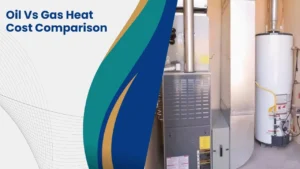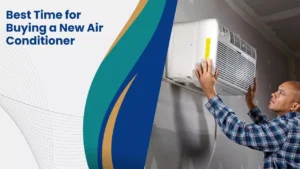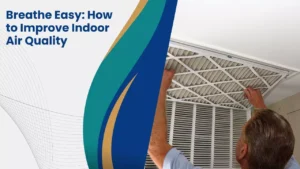Throughout the sweltering summer months, air conditioners are necessary to keep our houses cool and comfortable. However, an Air Conditioner Leak can be annoying and potentially harmful. We’ll explain the air conditioner performance checklist and discuss the causes of air conditioner leaks in this post, along with solutions.
Why Air Conditioners Leak
-
A Blocked Condensation Drain Line
An obstructed condensate drain line is one of the most frequent reasons for air conditioner leaks. Excess moisture from the air conditioner is eliminated by the condensate drain line. Water might accumulate in the device and finally seep out if the drain pipe gets clogged.
-
Defective Drain Pan
Excess moisture from the air conditioner must be collected and directed to the drain line by the drain pan. Water can spill from the appliance and harm your house if the drain pan is fractured or damaged.
-
Faulty Connections on Drain Lines
Loose drain line connections could also be a factor in air conditioner leaks. The connections between the drain line and the air conditioner may become slack with time, leading to leaks. This may be brought on by the unit vibrating, a poor installation, or normal wear and tear with age.
-
Low Levels of Refrigerant
Air conditioner leaks can also be brought on by low refrigerant levels. Your air conditioner relies on refrigerant to cool the air, so if there is not enough of it, the system won’t work properly. Low refrigerant levels could be the result of a refrigerant leak, which needs to be fixed to stop additional harm to the appliance.
-
A Soiled Air Filter
Air conditioner leaks may also be brought on by a dirty air filter. Dirt, dust, and other particles that could clog the drain line and result in leaks are captured by the air filter. If the air filter is not replaced frequently, it may clog and lead to leaks.
How to Stop Leaks in an Air Conditioner
-
Condensate Drain Line Cleaning
Cleaning the condensate drain line is the first step in repairing an air conditioner leak. This can be achieved by flushing away any dirt or mould that may be obstructing the line with a solution of water and vinegar. You might need to use a drain snake to unclog the drain line if it is severely clogged.
-
Change out the Drain Pan
The drain pan must be replaced if it is cracked or damaged. To ensure that the drain pan is placed correctly to avoid future leaks, a qualified HVAC specialist should be able to repair it for you.
-
Tighten the Connections on the Drain Line
If the drain line connections are loose and are the source of the leak, they must be tightened. A qualified HVAC expert can complete this task since they have the equipment and knowledge required to correctly tighten the connections and avoid leaks.
-
Replace the Refrigerant
Refrigerant must be replaced if the air conditioner is leaking as a result of low refrigerant levels. Due to the potential dangers involved in inappropriate handling of refrigerant, this should only be done by trained HVAC technicians.
-
Replace your air filter
It’s crucial to change the air filter frequently because a filthy air filter can result in leaks. Based on the size of your unit and the conditions in your house, a Qualified HVAC Expert can assist you in deciding how frequently to change the air filter.
Conclusion:
Numerous things includes in Air Conditioner performance checklist, such as clogged condensate drain lines, broken drain pans, loose drain line connections, low refrigerant levels, and dirty air filters, can lead to air conditioner leaks. It’s crucial to take care of these problems as soon as they are identified in order to stop leaks and maintain the proper operation of your air conditioner. It is usually preferable to call a qualified HVAC specialist for assistance if you are unable to resolve the issue on your own.





